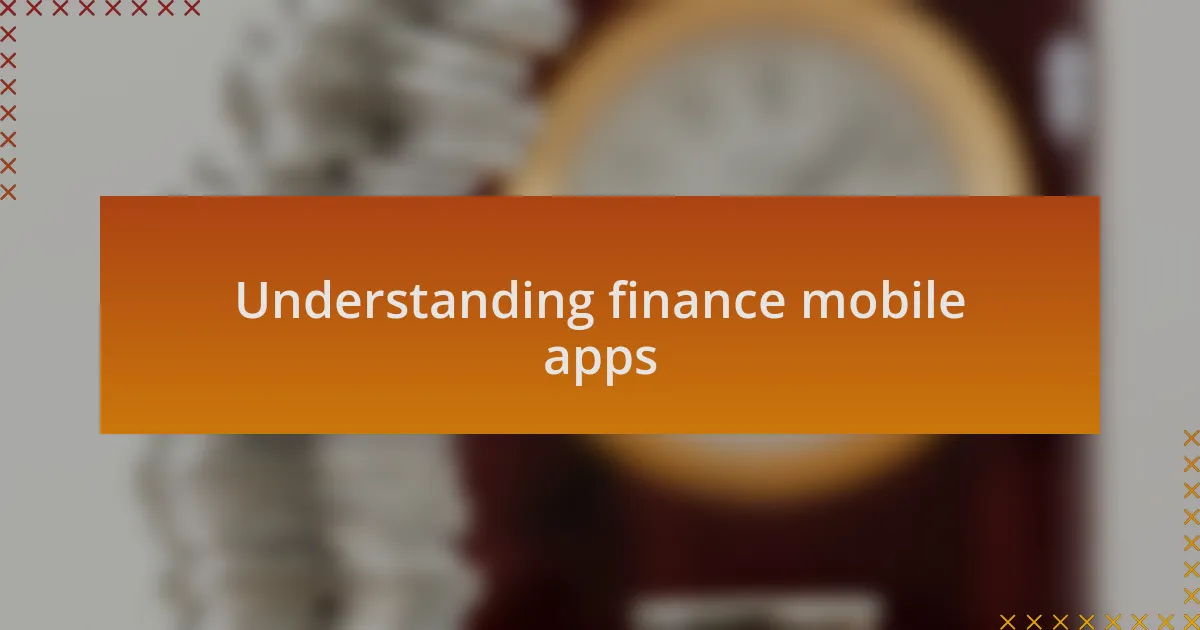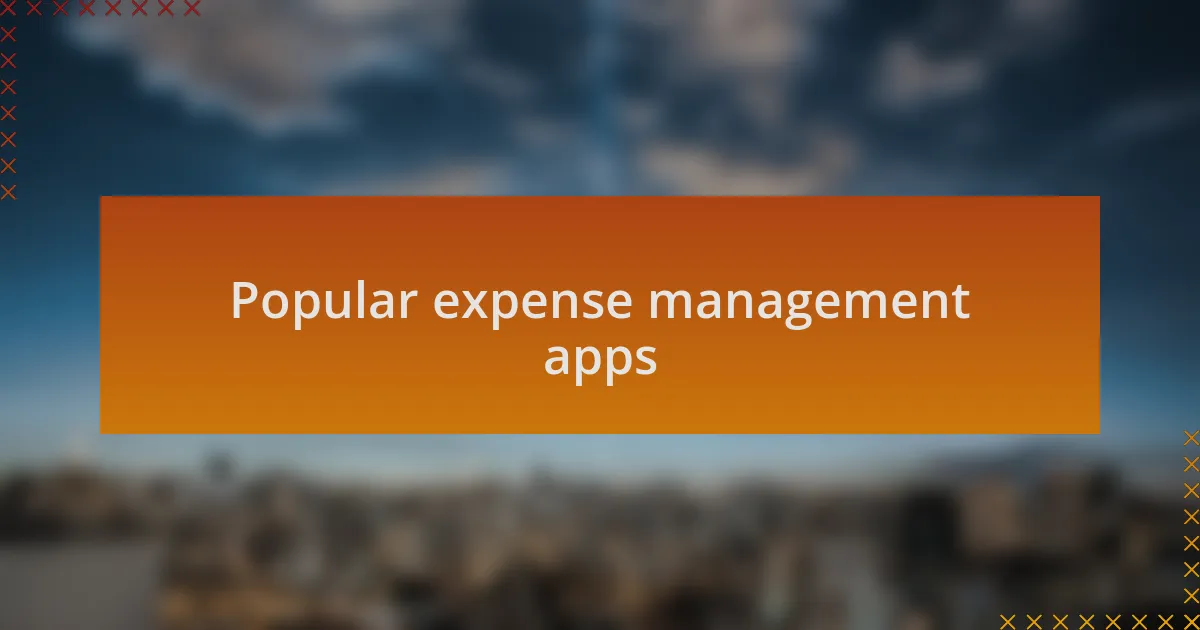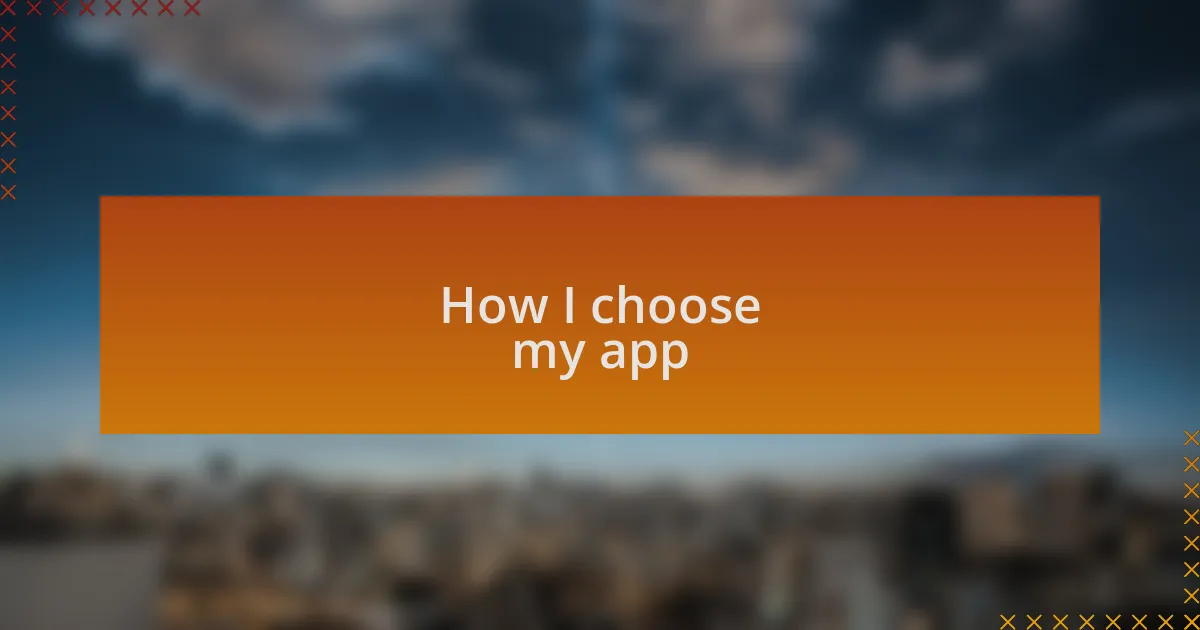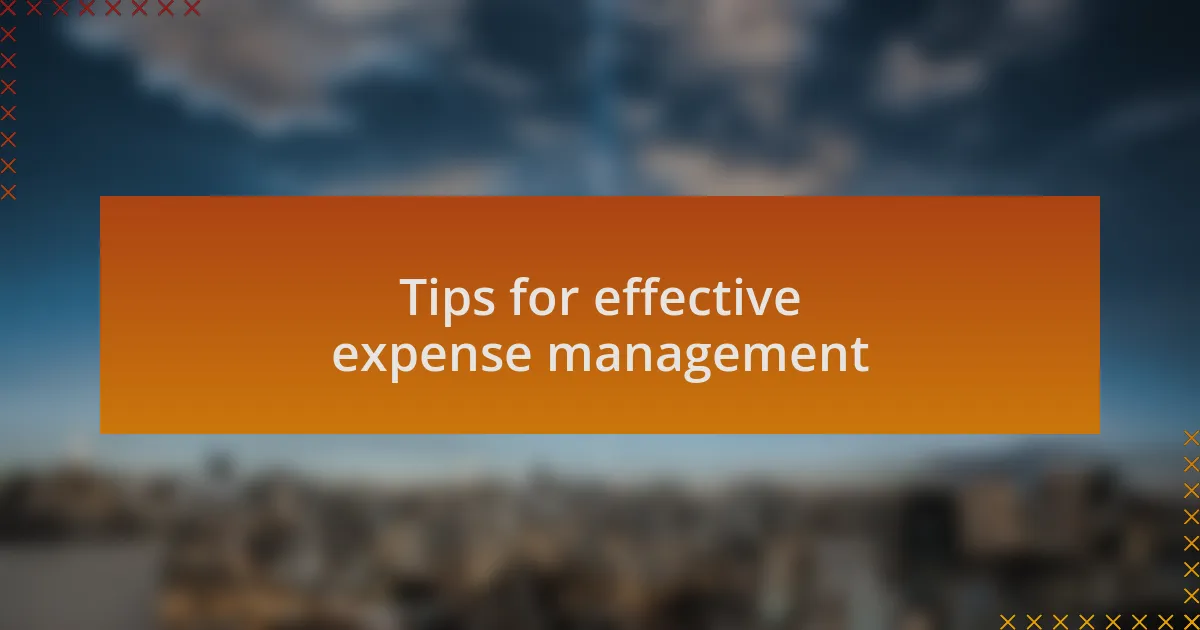Key takeaways:
- Finance mobile apps enhance financial awareness by providing real-time tracking and customizable budgeting, leading to informed spending decisions.
- Popular apps like Mint, YNAB, and PocketGuard offer unique features that simplify expense management and improve financial habits.
- Key app selection criteria include user-friendliness, security features, and community feedback to ensure a reliable and effective experience.
- Effective expense management techniques include weekly spending reviews, using cash for discretionary spending, and visualizing financial data for better insights.

Understanding finance mobile apps
Finance mobile apps are powerful tools that can simplify the way we handle our money. I remember the first time I downloaded an app to track my spending – it felt like a breathe of fresh air. Suddenly, I could see where my money was going, and that insight motivated me to change some spending habits I hadn’t even noticed before.
One of the most exciting aspects of these apps is their ability to provide real-time analysis. Have you ever felt overwhelmed by your expenses at the end of the month? I certainly have. With finance apps, I can check my budgeting status anytime, which gives me a sense of control over my finances. This constant awareness helps me make more informed decisions.
Moreover, finance apps often come equipped with budgeting features that customize your experience. I’ve found that setting up my budget in the app was like having a personalized financial coach. You might wonder how this translates into real savings. For me, tracking my expenses more closely has led to extra savings for that vacation I’ve been dreaming about. It’s not just about numbers; it’s about what those numbers can help us achieve.

Benefits of managing expenses
Managing expenses leads to greater financial awareness, which I find incredibly empowering. The first time I compared my monthly spending categories, I was shocked by how much I spent on dining out. This realization drove me to set personal limits, allowing me to prioritize savings instead. Have you ever considered how small adjustments in your lifestyle can lead to significant savings over time?
Another benefit I’ve experienced is the reduction of financial stress. Having an app allows me to see my expenses in one consolidated view, which makes budgeting feel less daunting. I recall a particularly stressful month when an unexpected expense occurred. Thanks to my tracking app, I was better prepared and able to adjust my budget accordingly, which made all the difference in feeling secure.
Furthermore, managing expenses can foster better financial habits. I’ve noticed that the continuous tracking encourages me to think twice before making impulsive purchases. For instance, I now pause and ask myself whether that latest gadget is worth it, which helps me stay aligned with my long-term financial goals. Isn’t it fascinating how a simple tool can enhance our discipline and decision-making?

Popular expense management apps
When it comes to popular expense management apps, one that consistently stands out for me is Mint. It automatically categorizes my spending, which makes it a breeze to see where my money goes each month. There’s something profoundly satisfying about watching my spending habits evolve through colorful charts and graphs—it’s almost like having a personal finance coach at my fingertips.
Another app that I’ve found incredibly helpful is YNAB (You Need A Budget). What I love about YNAB is its zero-based budgeting method. Each dollar has a job, and this approach encourages me to be intentional with my money. I remember one month when I overspent on groceries, which led me to reassess my budget. YNAB nudged me to allocate funds differently, turning a potential financial mishap into an enlightening experience.
Finally, there’s PocketGuard, which has a feature I truly appreciate. It shows me how much disposable income I have after accounting for bills, goals, and necessities. I still recall a time when I was tempted by a last-minute travel deal. Thanks to PocketGuard, I could easily see what I could afford without derailing my financial plans. Isn’t it empowering to monitor your spending while still enjoying life’s little luxuries?

Key features to consider
When I explore expense management apps, one key feature I always prioritize is real-time tracking. Being able to log transactions as I make them provides an immediate sense of control over my finances. I remember when I used to wait until the end of the month to review my bank statements. It felt like a time bomb, waiting to see just how much I overspent. Real-time tracking transforms that uncertainty into a manageable, proactive approach.
Another critical feature is customization. Each of us has different financial goals and habits, and having the ability to tailor categories to fit my lifestyle makes a world of difference. For instance, when I added a separate category for my fitness expenses, I was shocked at how much my gym memberships and classes impacted my budget. Customization not only helps me align the app with my goals but also gives me clear insight into where I might need to tighten my spending.
Lastly, let’s not forget about reporting tools. I can’t stress enough how vital it is to visualize my spending patterns over time. I remember reviewing a quarterly report from my app and realizing how much I was spending on dining out. It was an eye-opener! Those reports help hold me accountable and guide my future financial decisions—don’t you think having that perspective can redefine how you approach your budget?

How I choose my app
When it comes to choosing my expense management app, I look for user-friendliness first and foremost. I recall downloading a highly rated app filled with features, but I found its interface so confusing that I quickly abandoned it. It’s essential for me to have a seamless experience so I can focus on managing my finances instead of deciphering how to navigate the app. Have you ever felt frustrated with technology that complicates rather than simplifies your life?
Security is another major factor for me. I want to ensure my financial data is safe, so I tend to favor apps that offer robust encryption and privacy features. I remember discovering an app that not only kept my data secure but also provided me with peace of mind knowing my financial information was in good hands. How confident are you in the security measures of your finance apps?
Finally, I always check for community feedback and reviews. A few years back, I was searching for a new app and came across a recommendation from a financial blog that led me to one that perfectly suited my needs. Engaging with the user community and seeing what others have experienced offers me insight that I might not find through features alone. Do you read reviews before making a decision, and have they shaped your choices in unexpected ways?
![]()
My personal expense tracking methods
Tracking my expenses effectively requires a system that fits my lifestyle. I’ve developed a simple habit of categorizing every transaction I make, which not only helps me understand where my money goes but also highlights patterns in my spending. Just the other day, I reviewed my weekly expenses and realized I was overspending on dining out, prompting me to reassess my budget. Does that kind of revelation resonate with you?
One of my go-to methods is setting financial goals within the app. Whenever I want to save up for something specific, like a vacation or a new gadget, I create a savings goal and monitor my progress. I vividly remember the thrill of watching my vacation fund grow, and it motivated me to cut back on impulse purchases. Can you relate to the excitement of reaching a savings milestone?
Finally, I diligently utilize reminders and alerts to keep my financial commitments in check. By setting up notifications about upcoming bills or budget limits, I reduce the chances of overspending. Recently, I received an alert just in time to dodge an unnecessary expense, and I felt a sense of accomplishment for sticking to my plan. How do you stay accountable to your financial goals?

Tips for effective expense management
Effective expense management is all about developing habits that work for you. I find that reviewing my spending weekly keeps me in touch with my financial habits. Just last month, I noticed a trend in my grocery shopping — that organic produce was adding up! Have you ever seen something small in your budget turn into a big expense over time?
Another technique I employ is using cash for discretionary spending. I allocate a specific amount each week for non-essentials and once that cash is gone, it’s gone. It’s a simple way to physically see my limits. Last autumn, I tried this approach during the holiday season, and it really helped me stick to a budget without feeling deprived. How often do you find yourself overspending during festive times?
Finally, I believe in the power of visualizing my expenses. Many apps offer charts and graphs, which I find quite enlightening. During one review, I saw my entertainment expenses taking up a larger chunk of my budget than I anticipated. It was a real eye-opener! Have you ever used visuals to understand your financial behaviors? They can make the information not just clear but also memorable.